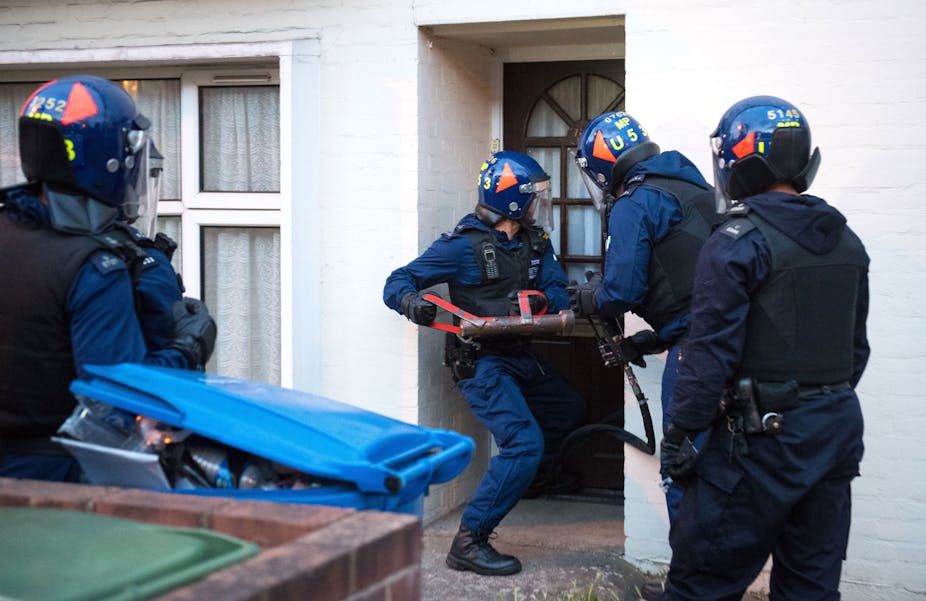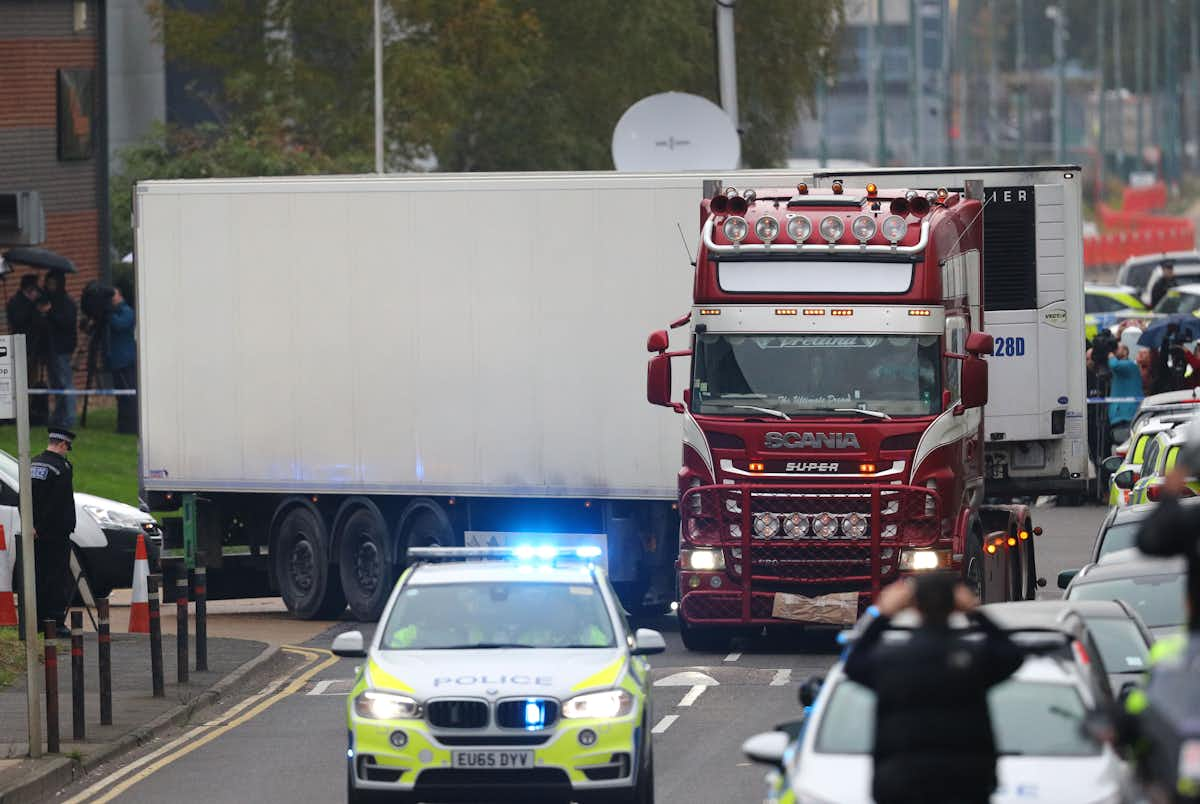
Organised crime groups based in the UK reportedly generate more money (over £24 million) from selling illegal drugs on the dark web than in any other country in the world.
Knowing this helps us understand how organised crime groups are using the internet to modernise and make money. But it doesn’t help us understand what these groups really look like, in terms of their internal organisation, recruitment and general “business” activity.
In fact, my current research into organised crime in the UK and Europe reveals big gaps in our knowledge. Law enforcement agencies, policymakers and academics have failed to join the dots (or even agree on what those dots are) and achieve a full understanding of organised crime.
Take, for example, the human trafficking network that organised the UK-bound lorry journey that led to the deaths of 39 Vietnamese nationals in 2019. Some arrests have been made, but do we really understand how the groups responsible cooperated to facilitate entry into the UK?

Or consider how the approach to “modern slavery” centres on the condition of the victims (which should not be ignored), but not the organisations which create it.
We know that most of the victims in the UK are minors, often forced to transport and sell drugs on the streets. But who are the people controlling the victims who suffer domestic servitude, forced labour and sexual exploitation? Who operates the brothels and cannabis factories, the car washes and restaurants where modern slavery is put into practice?
Perhaps we need to use another approach – one that is less centred around the moment a crime is committed, and takes a wider view of the membership and organisational structures of the groups behind those crimes.
The Italian way
Some are critical of the Italian law known as “mafia association”, which focuses on the criminal network and its membership as being a crime in itself. They believe its implementation risks sending innocent people to prison, while others think the law is specific to the Italian context and its history.
But Italian police officials could easily argue that, to a certain extent, their approach is working. In January 2020, the Italian Guardia Di Finanza in Reggio Calabria arrested, among others, a bank manager and a doctor on suspicion of being members of a mafia association, the ‘Ndrangheta.
They were not the “usual suspects” for a mafia. Yet the police’s joined-up approach of looking at all aspects of human behaviour and criminal activities (monitoring meetings, telephone conversations, financial transactions) locally and nationally was able to reveal the extensive power of the criminal network. This investigation highlights how Italian police have the instruments to be able to see the whole network – in particular the side that is hidden within the legal economy, local politics and society.
Again in January 2020, 94 people were arrested on suspicion of having defrauded EU agricultural subsidies. The suspects varied from traditional foot soldiers of the Sicilian mafia to representatives of the local economy and politics. They included a local mayor and an accountant.
This broad and complex approach allows police officers and judges to work in a practical, concrete and cohesive way by looking at the association of the people as a crime. It is the association that seeks to do the harm.
The focus then moves on to the specific wrong doing as a product of a whole group activity – not just the individuals at the lower levels of the chain who do the “dirty work”, like selling drugs on the street. It’s about moving up the chain to intercept the broader supply and importation networks. By looking at the group dynamics, it becomes easier to understand motives and logistics than it is by simply concentrating on standalone crimes.
It is a method which encourages a wider and more informative overview of organised crime. It also acknowledges the intricate nature of how this kind of crime is based both on control of criminal activities and on a “money cycle”.
This is the way organised crime groups seek to simultaneously make money on the streets from illegal activities (drugs, fake goods) and then transfer their profits to the legal economy (businesses, real estate, genuine luxury goods). In other words, following the money becomes central to targeting organised crime groups – and protecting their victims.![]()
Felia Allum, Senior Lecturer in Italian and Politics, University of Bath
This article is republished from The Conversation under a Creative Commons license.


